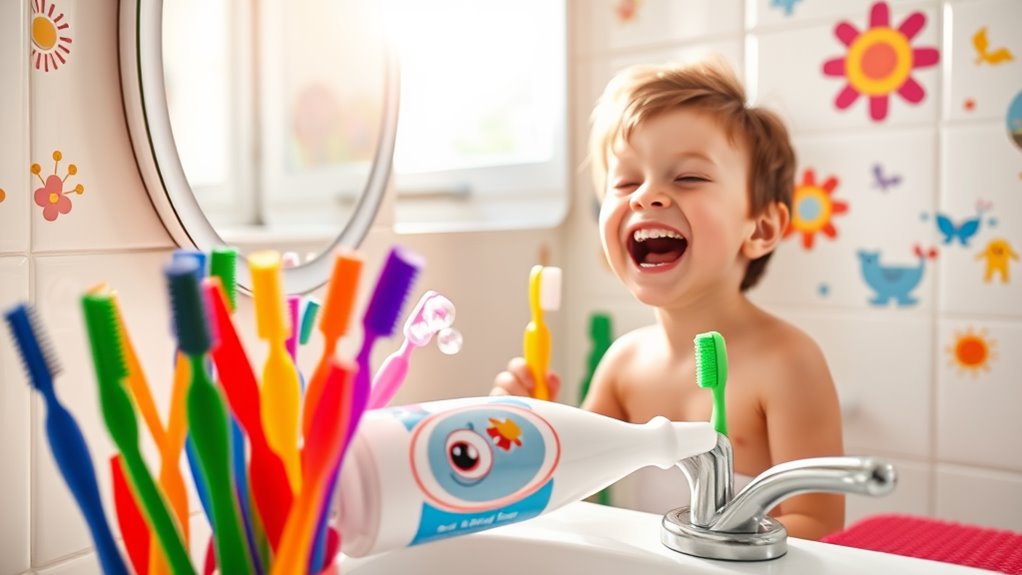Stop Doing THIS or Your Child Will Need Braces!
If you want to avoid braces for your child, it’s crucial to recognize certain habits that can lead to dental issues. Thumb-sucking and prolonged pacifier use may seem harmless, but they can significantly impact your child’s dental alignment. You might not realize how these behaviors affect their teeth. Understanding the risks and making proactive changes can make all the difference in your child’s oral health. What else should you be aware of to protect their smile?
The Impact of Thumb-Sucking on Dental Alignment
Have you ever wondered how something as simple as thumb-sucking can affect your child’s dental alignment? This common habit, while comforting, can lead to significant issues if it continues beyond the toddler years.
Thumb-sucking exerts pressure on your child’s teeth and jaw, which can cause misalignment. If you’re part of a community of parents keen on braces prevention, it’s crucial to address this habit early.
Encouraging your child to find alternative comfort methods, like a favorite toy or blanket, can help break the cycle. Consistent reminders and positive reinforcement can make a difference, too. Early dental visits are essential to monitor and address any developing issues related to thumb-sucking.
You don’t want to face the possibility of braces down the road, and addressing thumb-sucking now can save you both time and stress later. By working together with your child, you’ll pave the way for a healthier smile and boost their confidence, making you feel like part of a supportive parenting journey.
Dangers of Prolonged Pacifier Use
While thumb-sucking poses risks to dental alignment, prolonged pacifier use can lead to similar concerns. If your child continues to rely on a pacifier beyond the age of two, you might notice changes in their bite and jaw position. This dependency can result in an overbite or misalignment, which may require orthodontic intervention later on.
It’s important to recognize that while pacifiers can be soothing, they can also disrupt the natural development of your child’s mouth. As parents, we all want what’s best for our little ones, and reducing pacifier use can help ensure their smiles stay healthy. Additionally, monitoring pacifier habits is crucial as the child grows to prevent potential dental issues.
Encourage them to transition to other comforting habits, like cuddling a favorite toy or reading a bedtime story. By gently weaning them off the pacifier, you’re not just fostering independence; you’re also supporting their dental health and helping them avoid the need for braces in the future.
Poor Oral Hygiene and Its Consequences
Neglecting oral hygiene can lead to serious consequences for your child’s dental health. When kids skip brushing or flossing, plaque builds up, causing cavities and gum disease. You might think it’s just a phase, but poor habits now can set the stage for bigger problems later.
If your child develops cavities, they’ll likely need fillings, which can be uncomfortable and costly.
Moreover, neglecting their oral care can also affect their confidence. Imagine your child feeling self-conscious about their smile. Regular brushing and flossing not only prevent dental issues but also help them feel proud of their teeth. Additionally, good oral hygiene can reduce the risk of other health issues, such as respiratory infections.
Make it a family affair! Brush and floss together to create a routine that feels supportive and fun. Encourage your child to take pride in their oral hygiene, and they’ll appreciate the lasting benefits.
The Role of Diet in Dental Health
When it comes to your child’s dental health, the food they eat plays a crucial role in maintaining a bright smile.
A balanced diet can help prevent cavities and promote healthy teeth, setting a solid foundation for their future. Here are four dietary tips to consider:
-
Limit Sugary Snacks: Too much sugar can lead to tooth decay. Opt for healthier alternatives.
-
Encourage Crunchy Fruits and Veggies****: Foods like apples and carrots can naturally clean teeth and stimulate gums.
-
Include Dairy: Calcium-rich foods, such as yogurt and cheese, strengthen enamel and bones.
-
Stay Hydrated: Water is essential for washing away food particles and keeping saliva levels up. Additionally, incorporating calcium-rich foods into your child’s diet can significantly enhance their dental health.
Early Intervention: Recognizing Warning Signs
A healthy diet lays the groundwork for strong teeth, but it’s also vital to be vigilant about your child’s dental development. As a caring parent, you want the best for your child, and being aware of warning signs can make a huge difference.
Look for irregularities like crowding, gaps, or difficulty in chewing. If their baby teeth fall out too early or too late, that could signal an issue. Notice if they’ve a thumb-sucking habit that persists past age three, or if they breathe through their mouth. These behaviors can lead to misalignment and other dental problems.
Regular dental check-ups are essential; your dentist can spot issues early and help guide you. The sooner you recognize these signs, the better chance you have to ensure your child enjoys a healthy, confident smile for years to come. Early intervention can prevent more complex treatments later on.
You’re not alone in this journey—many parents are navigating similar concerns.




